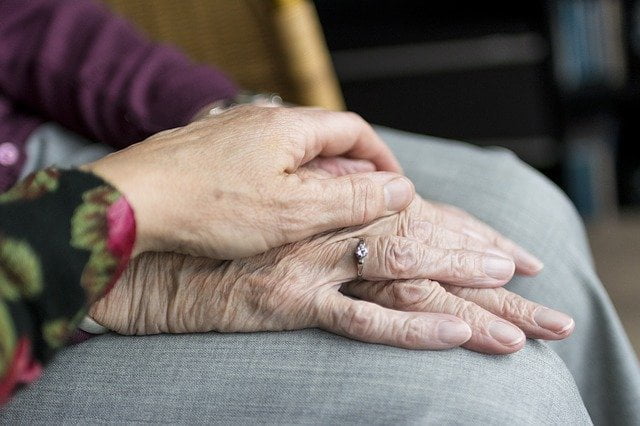Drug Rehab and Alcohol Rehab Northampton and near Northampton
Quick Links for help with addiction in Northampton
- What Are the Benefits of Drug Rehab and Alcohol Rehab in Northampton and near Northampton?
- What Types of Addictions Are Treated at Drug and Alcohol Rehab in Northampton and near Northampton?
- What Happens If I Don’t Get Help From a Drug and Alcohol Rehab in Northampton and near Northampton?
- What is Inpatient Drug Rehab and Alcohol Rehab Treatment Like in Northampton and near Northampton?
- What is Outpatient Drug and Alcohol Rehab Treatment Like in Northampton and near Northampton?
- How Are Co-Occurring Disorders Treated at Drug and Alcohol Rehab in Northampton and near Northampton?
- How Much Does Drug and Alcohol Rehab Cost in Northampton and near Northampton?
- Private Rehab vs Public Drug and Alcohol Rehab in Northampton and near Northampton – Which Is Better?
- What Are the Alternatives to Going to Drug and Alcohol Rehab in Northampton or near Northampton?
- How Can I Hold an Intervention for Drug and Alcohol Rehab in Northampton or near Northampton?
Drug and alcohol rehab clinics are the ultimate in helping beat an addiction.
The main problem many patients encounter is that they are unable to find the help they need.
But with these Northampton drug abusers and alcohol rehabilitation centres, such problems are a thing of the past.
The most important thing for anybody preparing to attend drug abuse and alcohol treatment centres in Northampton or near Northampton is to know what to expect.
If they are able to understand what awaits them, there will be no shocks when they enter drug and alcohol rehab in Northampton.
Start your recovery journey at a drug and alcohol rehab in Northampton today by calling us on 0800 088 66 86
How Bad is Drug and Alcohol Addiction in Northampton?

Alcohol support group smiling at a drug and alcohol rehab in Northampton and near Northampton
While the UK struggles to prevent drug and alcohol addiction, so does Northampton.
It was estimated by Northamptonshire.gov.uk that there were around 3,415 opioid or crack cocaine users in the county, which equates to around 7.5 per 1,000 adults.
The same study discovered that around 35% of adults between 16 and 59 had consumed drugs at some point in their lives.
Additionally, 5% of students in year 8 of school admitted to using drugs, whereas 18% of students in year 10 also admitted to consuming drugs.
In 2016/17, around 53% of patients admitted into drug and alcohol rehab expressed that they needed additional mental health treatment alongside their addiction treatment, with only 26.9% getting the extra support they required.
Below, we provide some statistics about alcohol and drug use in Northampton:
| Drug and Alcohol Statistics in Northampton | Data | |
|
3,415 | |
| Percentage of adults in 2019 in Northampton between 16 and 59 who had consumed drugs within their life | 35% | |
| Percentage of students in year 8 who admitted to using drugs in 2019 | 5% | |
| Percentage of students in year 10 who admitted to using drugs in 2019 | 18% |
Start your recovery journey at a drug and alcohol rehab in Northampton today by calling us on 0800 088 66 86
Is Drug and Alcohol Addiction a Disease?

Older person holding hands with a younger person at a drug and alcohol rehab in Northampton
Contrary to damaging misconceptions, addiction is officially recognised as a disease of the brain.
The disease model of addiction classifies addiction as a disease of chronic relapsing where the brain’s reward pathways (mesolimbic pathway) are altered.
In turn, subjects will experience a drastic change in levels of dependence on a particular substance.
When they become dependent on a substance, it will become incredibly difficult and discomforting to try to abstain without help from a drug and alcohol rehab.
It is important to recognise addiction as a disease because it reduces the stigma surrounding drug and alcohol addiction. Rather than dealing with poor habits and lifestyle choices, subjects fighting drug and alcohol addiction are battling a severe disease and need professional support from a drug and alcohol rehab in Northampton.
To find out more about how this approach to addction can inform effective addiction treatment in Northampton, call us on 0800 088 66 86
What Are the Benefits of Drug Rehab and Alcohol Rehab in Northampton?

Person next to a fire at a drug and alcohol rehab clinic in Northampton or near Northampton
The structure of treatment at drug and alcohol rehab in Northampton provides a huge range of benefits for patients, both in terms of short-term and long-term recovery.
From helping you overcome physical withdrawal symptoms to tackling the deeper psychological addiction, here are the key benefits of attending drug and alcohol rehab in Northampton:
- Starting your recovery optimally by completing a medicated detox in a controlled drug and alcohol rehab
- Improving the quality of life through a range of evidence-based drug and alcohol rehab therapies
- Treating co-occurring disorders such as anxiety, depression, OCD, alongside and with consideration towards full drug and alcohol rehab treatment
- Discovering new support systems through group therapy and 12-step facilitation that can support you after drug and alcohol rehab has concluded
What Percentage of Alcoholics Recover in Northampton and the wider UK?
It can be difficult to quantify the average rate of recovery from AUD, as many variables come into play.
With this being said, addiction experts often use statistics to determine how many people recovered successfully after entering drug and alcohol rehab in Northampton.
While these figures vary, a few studies estimate that around 75% of people [5] who complete a drug and alcohol rehab treatment programme in Northampton go on to make full recoveries.
While some individuals suffer a relapse in this time, these obstacles bring them ever closer to achieving long-term sobriety.
You can avoid relapse with the help of Acamprosate. This is a pill that brings the chemicals in your body back to normal levels, and removes cravings for alcohol.
What Happens at Drug and Alcohol Rehab in Northampton?
Individuals entering drug and alcohol rehab in Northampton can, therefore, expect the following treatment methods:
- A medically supervised detox to help rid them of their physical addiction
- Various forms of drug and alcohol rehab therapy, including cognitive, behavioural, and motivational
- Group support sessions and 12-step facilitation
- Personalised relapse prevention planning for after drug and alcohol rehab has finished
- Holistic therapies designed to cultivate healthy coping mechanisms
What Types of Addictions Are Treated At Drug Rehab and Alcohol Rehab in Northampton?

Two people discussing alcohol treatment at a drug rehab and alcohol rehab in Northampton
Drug and alcohol rehab clinics in Northampton help patients recover from a variety of conditions, including both substance use disorders and behavioural addictions.
- Alcohol Use Disorder
- Heroin Use Disorder
- Cocaine and Stimulant Use Disorders
- Cannabis Use Disorder
- Gambling Addiction (Ludomania)
- Internet Addiction Disorder
- Sex and Love Addiction
How Do I Know If I Need Drug and Alcohol Rehab in Northampton?
The ideal candidate for drug and alcohol rehab in Northampton will be someone requiring more intensive treatment for their condition.
If you’re wondering whether this could be you, here are some signs that you may require help from a drug and alcohol rehab clinic in Northampton:
- You’ve Noticed Withdrawal Symptoms: Many individuals who try to quit substances without the help of a drug and alcohol rehab notice withdrawal symptoms. These can be comprehensively treated via a medicated detox in rehab.
- Your Home Environment Isn’t Secure or Stable: Entering drug and alcohol rehab to treat your addiction can take you away from problematic environments, particularly if you have a difficult relationship with loved ones, or your friends also use substances.
- You Have a History of Mental Illness: Those with a history of mental illness, either pre-dating their addiction or recently emerging symptoms, should seek the help of a drug and alcohol rehab clinic in Northampton.
- You Cannot Control Your Substance Use: If you’re struggling to moderate how much you drink or the dosage of drugs you consume, this may mean that you’ve surpassed dependence and entered addiction.
What Happens If I Don’t Get Help From a Drug and Alcohol Rehab in Northampton?

Without the assistance of drug and alcohol rehab in Northampton, your addiction will worsen.
Since you will not have the necessary support through the form of medically supported facilities or the expertise of addiction specialists, your addiction symptoms will become more severe with each consumption or relapse.
The earlier that you address your addiction and enter a drug and alcohol rehab in Northampton, the easier and more effective treatment will be when it comes to recovering.
Can I Recover From Addiction Without Professional Help From a Drug Rehab and Alcohol Rehab in Northampton?
Choosing to recover without professional help in Northampton is a risky, often ill-advised decision, as it means you’ll miss out on various treatment components.
While it’s possible to recover without attending drug and alcohol rehab in Northampton, you may be missing out on the following treatment tools:
- Undertaking detox as a medically supported drug and alcohol rehab facility
- Personalised addiction treatment tailored to your needs
- Therapeutic drug and alcohol rehab methods that tackle the root causes of your addiction
- Post-drug and alcohol rehab support services to help ward off relapse
What is Inpatient Drug Rehab and Alcohol Rehab Treatment in Northampton Like?

Also known as residential drug and alcohol rehab in Northampton, inpatient care refers to live-in treatment – providing individuals with on-site accommodation for their recovery.
Inpatient care places individuals in a secure hospital setting for their detox, where they receive targeted medical support in the early stages of treatment at a drug and alcohol rehab in Northampton.
Typically, someone attending treatment in Northampton as an inpatient will be assigned a single room, but they may also choose multi-occupancy accommodation to reduce the cost of care.
During their live-in treatment, patients will attend behavioural therapies, group support sessions and have free time to pursue healthy hobbies.
What is Outpatient Drug and Alcohol Rehab Treatment in Northampton Like?
While inpatient drug and alcohol rehab care requires patients to live at the rehab facility in Northampton, outpatient treatment allows them to live at home and travel to their appointments.
Depending on the severity of their SUD, individuals can opt for a standard outpatient drug and alcohol rehab programme in Northampton that requires just a few hours of treatment each week, or an intensive outpatient drug and alcohol rehab program for acute addictions.
Inpatient vs. Outpatient Drug and Alcohol Rehab In Northampton – Which Is Better?
If you’ve already started your search for a drug and alcohol rehab clinic in Northampton, you may have noticed that there are two modes of treatment available: inpatient and outpatient.
Before selecting one over the other, it’s important to note the advantages and disadvantages of each option.
Inpatient drug and alcohol rehab care in Northampton [8] has many noteworthy pros, with the main advantages being:
- Access to Medical Attention: Inpatient care takes place in a secure hospital setting, meaning you’ll have access to medication-assisted therapy (MAT) during your detox and beyond.
- A Routine That Builds Stability: Because you’ll be living on-site, you’ll have a treatment routine carefully planned for you. This also helps you build structure and stability for your return to the outside world.
- Personalised Treatment: Residential drug and alcohol rehab is built upon the idea of one-to-one care, meaning you’ll receive treatment that is built around your needs, preferences, and unique addiction.
- Swift Admission: Because waiting lists for drug and alcohol rehab centres are far shorter and treatment is privatised, clients can enjoy fast-tracked admission into their chosen clinic.
The above advantages of inpatient drug and alcohol rehab care make it an effective treatment plan for most people. However, there are nevertheless disadvantages that should be noted, which include:
- Inpatient Care Can Be Costly: Due to the intensity of care and high-end drug and alcohol rehab treatment facilities, inpatient care is notoriously expensive compared to outpatient options. However, there are many types of programmes on offer these days, suitable for a range of budgets.
- Lack of Flexibility: Because of the rigorous treatment schedules put in place for drug and alcohol rehab inpatients, there’s little room for anything else. While this is optimal for severe SUD cases, the lack of flexibility may be stifling for milder addictions.
Outpatient drug and alcohol rehab treatment [9] is another treatment avenue chosen by many people, and just like inpatient care comes with its pros and cons.
The main advantages of attending drug and alcohol rehab treatment as an outpatient include:
- Patients Can Choose Their Schedule: Because they are not required to live on-site at a drug and alcohol rehab, outpatients can plan their treatment appointments around important responsibilities such as work and school.
- Treatment is Inexpensive: The main benefit of outpatient drug and alcohol rehab treatment is that it is often available through the NHS. This means you only need to pay for any medication you receive, but the bulk of treatment should be free.
- Detox Can Be Completed At Home: Patients with mild physical dependency can usually complete their detox at home, allowing them to stay in a familiar environment surrounded by loved ones instead of at an unfamiliar drug and alcohol rehab centre.
However, due to the less intensive nature of outpatient addiction in Northampton care, the cons of choosing this form of drug and alcohol rehab treatment can outweigh the pros.
Here are some potential reasons to avoid outpatient drug and alcohol rehab care if your addiction is moderate to severe:
- Patients Can Encounter Relapse Triggers: Because they’ll still be living at home, outpatients remain exposed to relapse triggers in their daily environment, which can decrease the efficacy of their drug and alcohol rehab treatment and compromise sobriety.
- Detox Can Be Less Likely to Succeed: Without round-the-clock medical care from a drug and alcohol rehab, SUD victims can increase their risk of experiencing debilitating withdrawal symptoms that cause them to relapse.
- Treatment is Less Personalised: Outpatient drug and alcohol rehab treatment in Northampton is often free, meaning it comes with less one-to-one care and personalisation.
How Effective is Drug Rehab and Alcohol Rehab in Northampton in Treating Alcohol and Drug Addiction?

Two people embracing at a drug and alcohol rehab in Northampton
Due to the stigma attached to addiction, many people doubt the efficacy of treatment methods like drug and alcohol rehab in Northampton.
However, attending a recovery programme at a drug and alcohol rehab in Northampton is the most effective way to treat your addiction and reclaim your life.
Not only will you receive help to recover from your physical dependency, but you’ll also be offered long-term drug and alcohol rehab therapies that have been proven to incite behavioural change.
Will Drug and Alcohol Rehab in Northampton or near Northampton Cure Me of My Addiction?
Although drug and alcohol rehab clinics in Northampton are not an outright cure for addiction, they will help you successfully manage your condition.
Because SUD is a brain disease of chronic relapsing [10], experts are hesitant to claim that it is curable, but this doesn’t mean it isn’t treatable.
Going to rehab in Northampton will allow you to counteract the harrowing impacts that addiction has had on your body and psyche.
Through personalised, comprehensive treatment in Northampton, you’ll be able to retrain your brain’s reward system and open up your life once more to experiences outside of substance misuse.
How Do I Achieve Abstinence Through a Drug and Alcohol Rehab in Northampton?
Experts have agreed that abstinence is always the safer and more effective route to addiction recovery.
At a drug and alcohol rehab in Northampton, emphasis will be placed on abstinence, rather than moderation or harm reduction.
Because addiction is a disease of brain reward, moderation is not possible, and the patient needs to eliminate their consumption entirely.
Abstinence is the simplest and most effective way of overcoming addiction. However, a programme will be implemented to assist the subject in achieving and sustaining abstinence from addictive substances.
Abstinence will be achieved by providing the patients with the necessary knowledge and skills required to overcome addiction.
This will be facilitated through various forms of therapy and relapse prevention planning.
If moderation control or harm reduction was encouraged, it would expose patients to future relapses consistently.
When the brain has been altered due to drug and alcohol addiction, we cannot be certain that patients won’t fall into addiction even with harm reduction or moderation.
Begin your journey towards abstinence with the help of a drug and alcohol rehab in Northampton – call us today on 0800 088 66 86
How Are Co-Occurring Disorders Treated at Drug and Alcohol Rehab in Northampton and near Northampton?

Black and white photo of people hugging at a drug and alcohol rehab in Northampton or near Northampton
Often, addiction can be a symptom of something else, such as a mental health problem.
Additionally, addiction can exacerbate existing mental health problems. These problems can vary from depression, anxiety, schizophrenia, and much more,
A study conducted by gov.uk discovered that around 59% of adults in treatment required additional mental health treatment.
In the event of co-occurring disorders, a dual diagnosis will be made and patients will receive treatment for addiction along with their other conditions.
These other conditions are varied and many, and they may include:
- Schizophrenia
- Bipolar Disorder
- Eating disorders
- Depression
- Generalised Anxiety Disorder (GAD)
- Borderline Personality Disorder (BPD)
- Obsessive Compulsive Disorder (OCD)
- Attention Deficit Hyperactivity Disorder (ADHD)
- Post Traumatic Stress Disorder (PTSD)
- Codependency
It is important to identify and address these requirements, and not only the symptoms of addiction.
At a drug and alcohol rehab in Northampton, these co-occurring disorders will be addressed to optimise the patient’s well-being.
Many organisations across the UK offer free mental health support, whether you are also suffering from addiction or not.
Some of these include Mind UK, Young Minds, Rethink Mental Illness, Samaritans and Papyrus.
To learn more about how your mental health will be supported at rehab in Northampton, call us on 0800 088 66 86
How Much Does Drug And Alcohol Rehab In Northampton and near Northampton Cost?
The final price of a standard 28-day stay at a drug and alcohol rehab in Northampton is influenced by many factors.
These include the clinic’s reputation, the type of facilities offered, its location in Northampton, and the treatment intensity required.
On one end of the spectrum, a luxury rehab centre can cost between £10,000 and £20,000 for a standard programme, with facilities akin to a high-end wellness retreat.
This is widely out of budget for many patients, who may opt to attend a budget clinic costing around £1,000 per week of drug and alcohol rehab treatment.
Will Your Insurance Cover Drug and Alcohol Rehab in Northampton or near Northampton?
Having private insurance, whether this is provided by your employer or paid for by yourself, may mean you’re entitled to some form of reimbursement.
Because many insurance companies recognise SUD as a medical condition, they will often cover portions of treatment, including medication, courses of therapy, or a full inpatient drug and alcohol rehab stay in some cases.
It’s also important to keep in mind that each policy and health insurer provides different levels of cover.
With this in mind, you must communicate with your insurance company as soon as you have the details of your proposed drug and alcohol rehab treatment.
They’ll be able to tell you which, if any, reimbursements you can expect and will communicate with your chosen drug and alcohol rehab in Northampton to organise payment.
Private Rehab vs Public Drug and Alcohol Rehab in Northampton – Which Is Better?

When recovering from a drug or alcohol addiction, it is best to take the process seriously and seek the advice of medical professionals. In doing so, the chances of successful recovery are maximised.
Subjects can opt for free services like that of the NHS or private residential rehabs in Northampton to facilitate their recovery. Depending on the subject, one might be more appealing than the other.
Free services are a budget-friendly option and offer flexibility for patients. However, the waiting lists may be long and they may lack personalised programmes which are imperative towards reaching recovery in Northampton.
Private residential drug and alcohol rehab clinics in Northampton, on the other hand, are more expensive.
They can cost around £6,000 to complete the 28 days at drug and alcohol rehab in Northampton.
Here, patients will have accommodation, medical facilities and supervision, a personalised programme, and more to assist recovery.
While some may opt for free services, private treatment also ensures that the patient is swiftly admitted rather than waiting as long as months for treatment in Northampton. Addiction can fester quickly, and it is best to seek treatment as soon as possible.
For guidance choosing between private and public rehab, call us on 0800 088 66 86
What Are the Alternatives to Going to Drug and Alcohol Rehab in Northampton or near Northampton?

Patient taking notes outside at a drug and alcohol rehab in Northampton
Professionally supported drug and alcohol rehab in Northampton is one of the best ways to recover from addiction.
However, if a subject is unable to go to rehab or feels that residential rehab in Northampton is not for them, there are other options they can consider.
There are many free and NHS-run drug and alcohol rehab treatment services, both run by charities and by NHS Foundation Trusts, in and near to Northampton. These include:
1. CAMHS Northampton
Address: First Floor, Newland House, Northampton, NN1 3EB
Telephone: 03000 273 737
Website: https://www.nhft.nhs.uk/camhs
2. Turning Point Northamptonshire & Milton Keynes
Address: 1-9 Barton Road, Bletchley, Milton Keynes, Buckinghamshire, MK2 3HU
Telephone: 01234 219 817
Website: https://www.turning-point.co.uk/
3. Substance to Solution (Change Grow Live), Northampton
Address: Spring House, 39 Billing Road, Northampton, NN1 5BA
Telephone: 0808 169 8512
Website: https://www.changegrowlive.org/substance-to-solution-northamptonshire/northampton
4. Bridge Substance Misuse Programme, Northampton
Address: 63c Gold Street, Northampton, NN1 1RA
Telephone: 01604 621 259
Website: https://www.bridge-northants.org.uk/
You can reach out to a number of remote services, such as the National Institute for Health and Care Excellence (NICE), Turning Point, We Are With You, Change Grow Live and the National Association for Children of Alcoholics.
If you are suffering from too many temptations and triggers in your home life, you may also be able to gain temporary residence in a sober living house.
Home Detox Outside of Drug Rehab and Alcohol Rehab in Northampton or near Northampton
Home detox in Northampton is also another appealing option for drug and alcohol rehab patients. This offers personal and financial flexibility for patients who have other responsibilities to tend to at home.
During the home detox, a medical professional will visit the home to ensure that the detox process in Northampton is going well. While this may seem ideal for many, it is also an unsafe option for others.
For patients who consume heavy amounts of their addictive substance (e.g. 30+ units of alcohol) or have failed previously to recover from addiction, they should not opt for a home detox. This is because they will need medically supported facilities and supervision.
Patients who inflict violence on others when they are detoxing or under the influence of substances should not undergo a home detox. They will be deemed to be ‘high risk’ and will require the support of medical professionals.
Additionally, those who have co-occurring conditions should seek the support of a private residential drug and alcohol rehab in Northampton. This includes mental health and physical conditions such as Wernicke encephalopathy, a history of seizures, pregnancy, depression, and so on.
Addiction is not something that can be achieved with minimal effort, it requires commitment and focus to ensure a full recovery in Northampton.
A medically supported drug and alcohol rehab in Northampton will provide these facilities to successfully reach recovery.
Thanks to its remote nature, anyone in Northampton who is suited to home detox will be able to access it.
Fellowship Groups in Northampton and near Northampton
Subjects can gain access to fellowship groups in Northampton such as Alcoholics Anonymous Northampton, Narcotics Anonymous, Cocaine Anonymous, Self-Management And Recovery Training and more.
Here, they can discover and utilise a strong network of support with others who share similar experiences.
Fellowship groups are usually most optimal for post-rehab life when the patient has undergone therapy and learned about relapse prevention planning. However, it is also available for those who have not entered rehab.
Alcoholics Anonymous (AA) is a fellowship group that is widely recognised across the globe. The nonprofit fellowship group offers a support system and a lifestyle guide through the 12 step programme to assist those who are recovering from alcohol addiction.
Narcotics Anonymous Northampton (NA) is another fellowship group that is similar to AA, however, it specialises in helping those recovering from drug addiction. Like AA, NA is nonprofit and apolitical, meaning that the members’ health and recovery are paramount. The same can be said for Cocaine Anonymous (CA).
Several offshoot 12-step programs in Northampton exist to offer more specific support, including Al-Anon Family Group Meetings and Alateen, which provide services specifically for adolescents. Together, all of these groups provide effective peer support and the chance to lean on a higher power when addiction seems like too much.
SMART Recovery is another self-help community that offers support for those recovering from drug and alcohol addiction in Northampton. The community facilitates meetings between members to resolve problems and encourage positive behaviour to optimise members’ lifestyles.
SMART, AA and NA all operate frequent meetings in and near Northampton, as well as several online meetings.

Therapist and patient discussing alcohol treatment at a drug rehab and alcohol rehab in Northampton
Outpatient Drug and Alcohol Rehab Treatment in Northampton or near Northampton
It is also an option to recover as an outpatient at a drug and alcohol rehab in Northampton.
While it may be convenient for some patients, it may not be optimal for a full recovery.
Its appeal lies in that patients can spend less money and undergo recovery while living at home in Northampton.
However, if their addiction was caused by social or environmental factors, then they are constantly exposed to addiction triggers, making it difficult to recover in Northampton.
Many addiction treatment services in Northampton offer outpatient treatment.
To access any of these many alternative addiction treatment services in Northampton, call us today on 0800 088 66 86
What is the Admissions Process Like at Drug and Alcohol Rehab in Northampton and near Northampton?

Alcohol support session in progress at a drug rehab and alcohol rehab in Northampton or near Northampton
Often it can be difficult to spot when you are suffering from addiction.
Social drinking can quickly become binge drinking, which can easily turn into alcohol dependency without the sufferer even realising, and this is true of all substances.
Once you call our team, a consultation will take place and they will have the opportunity to discuss your needs.
A ‘consultation’ may sound intimidating, however, this is completed in a very casual manner.
The consultation is free and consists of the patient discussing their personal details and their requirements for entering a drug and alcohol rehab in Northampton.
Requirements may vary from facility, budgetary, location preferences, or much more. Rehab Recovery will ensure that their requirements are met to encourage swift and successful recovery in Northampton.
When you attend rehab the extent of your addiction will be determined through the use of one or more psychiatric assessments, which allows your psychiatrist and rehab specialists to create a person-centred care plan that is specialised to address your specific needs.
The ASAM Criteria at Drug Rehab and Alcohol Rehab in Northampton
The ASAM Criteria is an effective way to determine which treatment patients will receive. It is a collection of objective guidelines utilised to plan where patients are placed, how they will undergo recovery, and how they will sustain recovery after their time at a drug and alcohol rehab in Northampton.
ASAM Criteria consists of principles such as considering the whole person, personalising treatment for specific patients, individualising treatment timelines, and offering a range of services.

People making notes on alcohol treatment at a drug and alcohol rehab clinic in Northampton
The Diagnostics and Statistical Manual of Mental Disorders (DSM-5) is another framework or criteria that is utilised to understand the severity of the subject’s addiction. There are 11 signs or symptoms associated with addiction with the DSM-5 criteria.
Some of the symptoms include impaired control, physical dependence, sustained use despite known problems. Social problems are also among the symptoms, and this can range from neglecting responsibilities, social isolation, and more.
The framework is utilised by clinicians to determine the level of a patient’s addiction. If a patient is suffering from two or three symptoms, then it indicates that they are suffering from mild substance use disorder (SUD).
Four or five symptoms indicate that the patient suffers moderately from addiction, and any more symptoms mean that the patient’s addiction is severe. The level of severity will determine how long their treatment will last and what methods will be used.
Other assessments widely used to diagnose addiction include the AUDIT (Alcohol Use Disorders Identification Test) and the CAGE Questionnaire.
If any of these questionnaires have made you concerned about your own need for drug and alcohol rehab in Northampton, talk to us today on 0800 088 66 86
How Can I Hold an Intervention for Drug and Alcohol Rehab in Northampton?

Black and white photo of chairs set up for a group therapy session at a drug and alcohol rehab in Northampton
If you have great concern for a loved one in Northampton who might be suffering from an addiction, it might be wise to consider professional intervention.
Here, a professional interventionist will organise an intervention with the subject suffering from addiction and their close friends and family.
Community Reinforcement And Family Training (CRAFT) is an example of an effective way to facilitate an intervention.
It is a non-confrontational form of intervention, and it reinforces to the subject that they need to seek professional help in Northampton.
Successful intervention begins with identifying a person’s willingness to quit.
Ask, Advise, Assess, Assist, and Arrange are the five major steps necessary for a successful intervention.
For guidance holding an intervention to help convince an individual to pursue addiction treatment in Northampton, call our team on 0800 088 66 86
Medicated Detox at Drug and Alcohol Rehab in Northampton and near Northampton
The medicated detox is fundamental in any drug and alcohol rehab recovery plan in Northampton. To successfully overcome addiction, patients will need to clear the toxic substances from their bodies to proceed with the recovery plan.
Here, patients recovering from alcohol addiction will spend around 7 to 10 days in a medically supported facility allowing substances to withdraw from their bodies. Patients recovering from other drugs might spend up to two weeks allowing substances to withdraw safely.
A medically-assisted detox is often key in overcoming those substances that cause physical dependence, such as alcohol, heroin, ketamine and benzodiazepines.
Other addictions do not require detox, such as behavioural addictions (gambling addiction, sex addiction, etc.) cocaine addiction and cannabis use disorder.
For alcohol detox, the substance Librium, also known as Chlordiazepoxide, is extremely effective at reducing the effects of alcohol withdrawal syndrome.
Librium is used to treat anxiety as well as alcohol withdrawal symptoms, which can make detoxing stressful and even dangerous in the case of such as delirium tremens, Wernicke’s Encephalopathy and alcohol seizures.
Heroin detox is extremely important to ensure a safe recovery, not just for heroin addiction but also for any opioid use disorder.
Medications like methadone and buprenorphine are widely used to make heroin withdrawal a much safer process.
Because the medicated detox stage is vital in any addiction recovery programme in Northampton, they are carefully planned and monitored by medical professionals. Patients will receive 24/7 care and medication prescribed by an addiction physician at drug and alcohol rehab to ensure they are safe.
Many physical conditions induced by addiction also need to be taken into account during detox at a drug and alcohol rehab in Northampton.
These are widespread and depend on the specific addiction, but some of the most common are:
- Liver failure
- Hepatitis
- Heart issues
- Blood pressure issues
- Brain damage
- Gastrointestinal issues
To learn more about how detox will be conducted during addiction treatment in Northampton, call our team today on 0800 088 66 86
Can I Do a Drug or Alcohol Detox At Home in Northampton?
Withdrawal symptoms during an alcohol detox are among the most dangerous, so while it’s possible to detox at home, most professionals will advise against it.
However, if you are confident that an at-home alcohol detox could be right for you, be sure to take precautionary measures to ensure your safety.
Many individuals opt for a supervised home detox, meaning that they consult with a doctor or healthcare professional beforehand to design a tapering schedule.
Throughout their detox, they keep regular contact with their doctor who can prescribe medication if necessary to ease withdrawal symptoms.
What Happens During Detox at a Drug and Alcohol Rehab in Northampton or near Northampton?
During your bespoke detox, there are a few different processes that you can expect, including both medical and holistic support, to give you the best start to your recovery journey in Northampton.
Initially, you’ll undertake an exam that helps your detox team build a bespoke treatment protocol.
This may include blood work, talking about your substance use history, and disclosing any mental health symptoms.
Once a plan has been made at a drug and alcohol rehab in Northampton, the next stage is known as stabilisation.
This refers to the process of gradually tapering your substance use while receiving medication to tackle any withdrawal symptoms.
Once you’re feeling comfortable and toxins have been flushed from your system, you’ll be prepared for further drug and alcohol rehab treatments.
In total, the detox process should take between 7-10 days of slowly tapering and stabilising the body and mind.
However, the process can be shorter or longer depending on the substance you’re addicted to and the severity of your condition.
What Happens After Initial Detoxification at Drug and Alcohol Rehab in Northampton and near Northampton?
Ridding the body of addictive substances is an important first step, but it is simply a precursor to longer-term drug and alcohol rehab treatments in Northampton.
After your initial detoxification, it’s imperative to tackle the effects that addiction has had on your psyche through a range of drug and alcohol rehab therapies.
Typically, detox is followed by a minimum of 2 weeks in structured therapy, including CBT, motivational enhancement, group therapy and much more.
How Long Does Drug and Alcohol Rehab Last in Northampton and near Northampton?

While the medicated detox will last around 7 to 10 days (for alcoholism) or from one to two weeks (for drug addiction), patients will typically spend around 28 days in their chosen drug and alcohol rehab in Northampton.
However, for patients who are suffering from a more severe addiction to highly addictive substances such as heroin, they may need to spend up to 90 days at a drug and alcohol rehab in Northampton.
28 days at drug and alcohol rehab in Northampton allows the patient to fully focus on recovery and rehabilitation through the means of detoxing, therapy, and relapse prevention planning. It is important to utilise time efficiently when recovering from addiction, as it is a long-term process.
Detoxifying, improving the health and re-educating the patient is vital in ensuring that their recovery is sustained in the long term. This will maximise the patient’s chance of successful recovery when they leave drug and alcohol rehab in Northampton and sustain sobriety with more independence.
For a more accurate answer regarding the length of your stay at rehab in Northampton, call our team today on 0800 088 66 86
How Do I Access Drug and Alcohol Rehab in Northampton and near Northampton for Other Substances (Cannabis, Cocaine, Heroin)?
Just as you would need the support of a drug and alcohol rehab in Northampton to overcome alcoholism, patients will need to enter rehab to overcome substances such as cannabis, cocaine, and heroin.
However, the methods of therapy and the length of time spent at rehab may be different to those undergoing recovery from alcoholism. The length of time spent at rehab and methods of recovery will vary from patient to patient depending on many factors.
These factors include but aren’t limited to the patient’s medical history, their current mental and physical health, whether they have co-occurring disorders, their cause of addiction, and much more.
Patients who have a short history of addiction will typically spend less time at drug and alcohol rehab than those who have an extensive history.
This is because it will be more difficult to negate the long-standing bad habits and it is likely their addiction will be more severe.
While those recovering from heroin addiction could spend up to two weeks in the detox stage, cocaine and cannabis patients do not require a detox.
This is because the withdrawal symptoms for heroin are so severe that they can cause death. Additionally, withdrawal symptoms can persist for around 15 days. It is also a physically addictive drug, whereas cocaine and cannabis are psychologically addictive.
Begin your recovery from drug addiction at a rehab in Northampton today – call us on 0800 088 66 86
Physical vs Psychological Addiction – What’s The Difference?

Example of a kitchen space at a drug rehab and alcohol rehab in Northampton
Addiction will present many symptoms and they will vary from one subject to the next. Depending on the history of the subject and their substance of use, they may suffer from physical or psychological addiction.
With a physical addiction, subjects will feel compelled to consume substances in order for their bodies to function properly. With psychological addictions, subjects will feel mentally unwell until they have consumed their addictive substance.
If a patient is physically dependent, they might experience symptoms such as nausea, fatigue, headaches, seizures, fever, and so on. Psychological dependence will present symptoms such as anxiety, memory loss, depression, erratic behaviour, and more.
Heroin is an example of a substance that is physically addictive. Other substances, such as cannabis or cocaine, are psychologically addictive.
This means that they will not present physical withdrawal symptoms like that of alcohol.
Alcohol, on the other hand, might present both physical and psychological symptoms for subjects. This makes it even more difficult to recover from, and patients will need the support of an experienced team and a medically supported facility to help them detox.
This means that the withdrawal symptoms experienced in Northampton will vary drastically from one substance to the next.
It also means that some addictions, such as cocaine dependence and cannabis use disorder, do not require a medicated detox because they only present psychological withdrawal symptoms.
Addiction is not considered a ‘choice’ or ‘moral failing’ on behalf of the addiction sufferer – drug and alcohol rehab is about treating the disease of addiction.
Start your recovery journey at a drug and alcohol rehab in Northampton today by calling us on 0800 088 66 86
What Therapies Are Available at Drug and Alcohol Rehab in Northampton and near Northampton?
At a drug and alcohol rehab in Northampton, there will be a wide range of therapies available for patients.
Therapy will target symptoms of addiction, negative behavioural patterns and cognitive distortions to improve the patient’s physical, psychological, and spiritual well-being.
The types of drug and alcohol rehab therapies will come in a range of forms, however, many are communication-based forms of therapy in Northampton.
Communication-based therapy includes (but isn’t limited to) support sessions, Cognitive Behavioural Therapy & Dialectical Behavioural Therapy, Motivational Interviewing and more.
Communication-Based Therapies at Drug and Alcohol Rehab in Northampton and near Northampton

Man sat on a sofa at a drug rehab and alcohol rehab in Northampton or near Northampton
Support sessions are an effective way to provide the patient with a platform to share their experience.
Here, they can empower and be empowered by others and consolidate a stronger support network within the community.
Just like support sessions, Cognitive Behavioural Therapy (CBT) and Dialectical Behavioural Therapy (DBT) are utilised in many recovery programmes because they are proven to be effective with many patients of addiction.
CBT is implemented to assist the drug and alcohol rehab patient in reconfiguring negative thought patterns and cognitive distortions.
DBT, on the other hand, focuses on the emotional management of the patient. It helps them in managing intense feelings that may exacerbate addiction.
Motivational Interviewing is a goal-oriented style of motivational therapy aimed to help the patients reinforce their personal objectives through communication. It is proven to be effective in helping patients manifest their ambitions and successfully reach sobriety.
Codependency treatment is also implemented in some alcohol and drug rehabs. Here, the drug and alcohol rehab programme will address the problems that are perpetuated or exacerbated by co-dependent relationships.
Co-dependency can create a myriad of problems for those who consume alcohol or drugs regularly. Because the friend or partner is helpful, highly functioning, and caring, it can facilitate bad behaviour by catering to what a subject desires.
To learn more about how these treatments can be accessed through rehab in Northampton, call our team on 0800 088 66 86
Holistic Therapy at Drug and Alcohol Rehab in Northampton and near Northampton

Mural painting at a drug and alcohol rehab in Northampton
Holistic therapy is vastly different to communication-based drug and alcohol rehab therapies. Rather than focusing on particular symptoms or objectives, holistic therapy aims to improve the wellness of patients physically, mentally, and spiritually.
Patients who undergo holistic therapy in Northampton often experience reduced levels of stress and anxiety as a result. This will help them greatly on their road to overcoming addiction and leading a substance-free life after drug and alcohol rehab in Northampton.
Holistic therapy is facilitated in many different ways, as it can vary from tai chi and yoga to meditation, mindfulness, massages, music therapy, art therapy, equine therapy, drama therapy, aromatherapy, and much more. There is almost certainly a form of holistic therapy that will cater to each patient.
Whilst most drug and alcohol rehab clinics in Northampton will offer some form of holistic therapy, the particular nature of that therapy will depend on the resources, expertise and locations available.
These are just a few of the various talking therapies and psychiatric treatments you may experience whilst at drug and alcohol rehab in Northampton, which can also include:
- Group Therapy and Group Psychotherapy
- Individual Therapy
- Motivational Enhancement Therapy
- Brief Intervention
- Eye Movement Desensitisation and Reprocessing
- TSF (Twelve-Step Facilitation Therapy)
- Acceptance and Commitment Therapy
- Contingency Management
- Rational Emotive Behaviour Therapy
Learn more about accessing specific treatments through drug and alcohol rehab in Northampton by calling us on 0800 088 66 86
Relapse Prevention Planning at Drug and Alcohol Rehab in Northampton and near Northampton
While the patients may experience a mental, physical, and spiritual renewal at drug and alcohol rehab in Northampton, their recovery needs to be sustainable.
This is why it is paramount that patients learn about relapse prevention at their drug and alcohol rehab in Northampton.
The threat of relapse is always there, no matter how great the subject feels after they have left rehab. It is imperative that the drug and alcohol rehab that they select to provide the skills and knowledge to identify emotional, physical, and mental relapse triggers.
Most drug and alcohol rehabs will include relapse prevention planning. Cognitive Behavioural Therapy is a form of therapy that assists the patient in reinforcing relapse prevention techniques, and it is employed by most drug and alcohol rehab facilities in Northampton.
12 Step Facilitation Therapy is an example of a technique that deters former patients from relapsing.
This is done by promoting abstinence and positive lifestyle choices, and this technique is commonly used in AA and NA meetings.
Another example of relapse prevention is the Cenaps Relapse Prevention Model. In this model, there are nine steps to overcoming relapse triggers in Northampton.
They include:
- Self-regulation
- Integration
- Understanding
- Awareness
- Support
- Maintenance
When taking precautions to deal with potential relapses, subjects should assess their history of addiction, determine the known signs that may lead to relapsing, and create a go-to plan in the event that a relapse could happen in Northampton.
Find out more about how a drug and alcohol rehabs in Northampton will help you avoid relapse by calling us on 0800 088 66 86
How Do I Select a Suitable Drug and Alcohol Rehab in Northampton or near Northampton?

Therapy group talking together at a drug rehab and alcohol rehab in Northampton
The process of selecting a drug and alcohol rehab can be overwhelming. This is because there are a plethora of options and factors to consider.
When selecting a drug and alcohol rehab in Northampton, subjects should create a list of what is important to them.
The drug and alcohol rehabs in Northampton may vary in their style and approach towards conquering addiction. Because of this, subjects should consider which type of rehab is optimal for their recovery.
Subjects should opt for a drug and alcohol rehab centre in Northampton that is established and reputable.
This means a rehab clinic in Northampton that has experience of around 20 years and favourable reviews. While quality is everything, drug and alcohol rehab also needs to be affordable for patients.
During the admissions process, subjects can also speak to members of staff at these drug and alcohol rehab facilities in Northampton.
Here, they can decide whether they feel more comfortable with one drug and alcohol rehab over another.
It is best to explore your options when it comes to drug and alcohol addiction recovery.
Start your recovery journey today by calling our expert team on 0800 088 66 86
How Do I Choose the Right Drug and Alcohol Rehab Facility in Northampton or near Northampton?

Therapist leading an alcohol support group at a drug rehab and alcohol rehab in Northampton
Drug and alcohol abuse comes in many different forms and gradients. As such, the treatment in Northampton for each drug and alcohol abuser needs to be slightly different and tailored to meet the specific needs of each person.
Because of this, there are a number of treatment centres offering various programs and approaches to drug and alcohol rehab treatment:
- Private clinics generally have more money at their disposal. This can lead to newer equipment and slightly better facilities. Some private drug and alcohol rehab centres may look more like luxury hotels rather than medical facilities. The peace and tranquillity of such places in beautiful surroundings can serve as part of the drug and alcohol rehab process by showing people a different lifestyle from the one that they are used to.
- Through NHS drug and alcohol rehab programs, it may be possible to seek drug and alcohol rehab in Northampton for free or at a considerably lower cost. Although NHS clinics are less likely to be as luxurious as private clinics, they are more than able to offer effective treatment in order to help people get clean.
- 12 Step programs can be used to guide people through the various stages of drug and alcohol rehab. The first step is detox. This may be followed by the discovery of the underlying problem, dealing with that and then putting practises in place to build a better future drug and alcohol-free
- Holistic methods may be used to cleanse the body, mind and soul from the toxins of harmful substances.
- There are treatment programs for drug and alcohol rehab that are geared towards religious beliefs and ones that aren’t. The renowned AA 12-step program was originally based heavily around a belief in God, asking people to place their trust in Him. However, this was adapted to use the same steps but ask people to believe in themselves. This program is more suited to non-believers.
How Can Families Get Help From a Drug and Alcohol Rehab in Northampton or near Northampton?

People walking outside at a drug and alcohol rehab in Northampton or near Northampton
When a loved one takes the decision to enter drug and alcohol rehabilitation centres in Northampton it’s understandable their families will be worried about their treatment.
They needn’t worry because these facilities offer state-of-the-art treatment systems.
Every need of the drug and alcohol rehab patient is attended to.
The only thing they will have to concentrate on is getting better. By removing them from the struggles of daily life, all their focus can be concentrated on one goal.
Access first-rate alcohol rehabilitation in Northampton by calling our team on 0800 088 66 86
Detoxification at Drug and Alcohol Rehab in Northampton and near Northampton
A major factor of drug and alcohol rehab centres are the detoxification treatments offered.
Through powerful medications designed to reduce the body’s dependency on the drug.
These medications can only be found within private drug and alcohol treatment centres in Northampton.
Individuals shouldn’t worry about becoming addicted to these new medications because they aren’t addictive.
Any addictive qualities normally present within drugs and alcohol are removed.
Over the first few days of treatment in Northampton, a focus will be placed on detoxification. The idea is to eliminate the problems caused by withdrawal symptoms prior to later drug and alcohol rehab stages.
Counselling at Drug and Alcohol Rehab in Northampton and near Northampton
Counselling is a major part of any treatment program. Drug and alcohol rehab must begin with confronting the issues which are the most sensitive.
These are at the heart of addiction and must be conquered before a better future can be created.
Northampton drug and alcohol rehab clinics will utilise private and group counselling in an attempt to draw these things to the surface.
Group counselling will involve support from the other drug and alcohol rehab residents.
Residents must be able to interact with each other because only by going through these issues can someone truly relate to what’s going on.
These group sessions are normally quite informal and support people through their challenges.
Private counselling is entirely different. Each individual is assigned a qualified drug and alcohol rehab counsellor.
This counsellor will seek to delve into the psyche of the individual to unearth the issues impacting them the most.
This is one of the most traumatic forms of counselling, yet at the same time, it’s also the key to creating a better future.
Through being able to develop coping mechanisms to deal with the issues which caused the addiction in the first-place, patients can beat their addictions for good.
Get the help you need through a drug and alcohol rehab in Northampton today – call us on 0800 088 66 86
What Happens After Drug and Alcohol Rehab in Northampton or near Northampton?
Recovering from a Substance Use Disorder is a lifelong process that continues long after you have left drug and alcohol rehab.
Upon graduating from rehab, you’ll return home armed with the coping mechanisms you learned during treatment and can start building a more fulfilling life.
However, life after drug and alcohol rehab is by no means devoid of further support in Northampton.
You’ll be given full support via an individualised aftercare programme, which can involve outpatient drug and alcohol therapy sessions, 12-step group attendance and continuing medication when appropriate.
How Will I Sustain My Sobriety Once I Leave Drug and Alcohol Rehab in Northampton or near Northampton?
You will have various support systems put in place upon leaving your chosen clinic, depending on which treatments worked best for you while at drug and alcohol rehab in Northampton.
Aftercare programmes will help you sustain your sobriety by providing access to 12-step support groups such as AA or NA.
In addition, many drug and alcohol rehab clinics provide life-coaching services that can help you reach goals separate from your addiction recovery.
If you are making steps towards building a healthier, more productive life, you’ll be less likely to relapse and compromise your sobriety.
Aftercare Programmes After Drug and Alcohol Rehab in Northampton and near Northampton

Patient speaking on a laptop at a drug rehab and alcohol rehab in Northampton
An aftercare programme refers to ongoing treatment that is completed on an outpatient basis following drug and alcohol rehab in Northampton.
While each aftercare plan is personalised to suit your needs following drug and alcohol rehab in Northampton, you’ll likely encounter the following activities: weekly counselling sessions, group therapy, holistic therapy, and frequent health evaluations.
How Long Does Aftercare Last After Drug and Alcohol Rehab in Northampton?
A typical aftercare programme will last for 12 months post-drug and alcohol rehab and is usually offered to graduates free of charge.
Because rates of relapse tend to be higher in the first 6 months following treatment, this section of your aftercare programme may be more intense.
Your therapist will make a thorough plan with you, discuss how often you should attend drug and alcohol rehab therapy as an outpatient in Northampton and whether you require any additional services.
How Do I Get Help From Rehab Recovery For Drug and Alcohol Rehab in Northampton Today?

Person typing on a phone looking for alcohol addiction support from a drug rehab and alcohol rehab in Northampton
For more information on drug and alcohol rehab options in Northampton, contact Rehab Recovery today on 0800 088 66 86.
When you contact us, we shall outline a variety of treatment options that are available to you in Northampton.
This includes both private and statutory addiction treatments in Northampton.
Every drug and alcohol rehab in England and Wales that we work with is vetted by the Care Quality Commission.
Get help for addiction anywhere in Northamptonshire, including in Kettering, Daventry, Wellingborough, Corby Warmington, Woodford, Woodnewton, Yarwell, Ashley, Barton Seagrave, Brampton Ash, Braybrook, Broughton, Burton Latimer, Cranford, Cransley, Desborough, Dingley, Geddington, Grafton Underwood, Harrington, Loddington, Mawsley, Newton and Little Oakley, Deanshanger, Scaldwell, Walgrave and many more.
References for Drug and Alcohol Rehab in Northampton and near Northampton
[1] https://www.addictionpolicy.org/post/dsm-5-facts-and-figures
[2] https://www.hrsa.gov/behavioral-health/cage-aid-substance-abuse-screening-tool
[3] https://newsinhealth.nih.gov/2015/10/biology-addiction
[5] https://www.npr.org/2022/01/15/1071282194/addiction-substance-recovery-treatment
[6] https://www.ncbi.nlm.nih.gov/pmc/articles/PMC4606320/
[7] https://www.legislation.gov.uk/ukpga/1996/18/contents
[8] https://www.health.harvard.edu/addiction/substance-addiction


